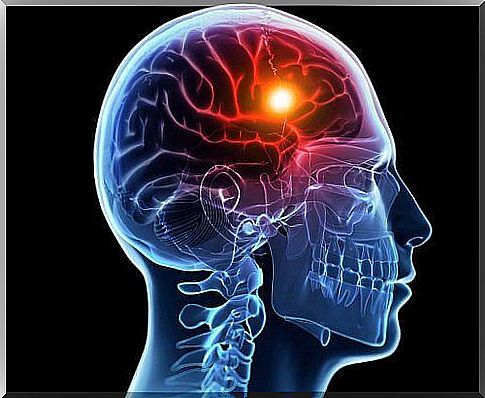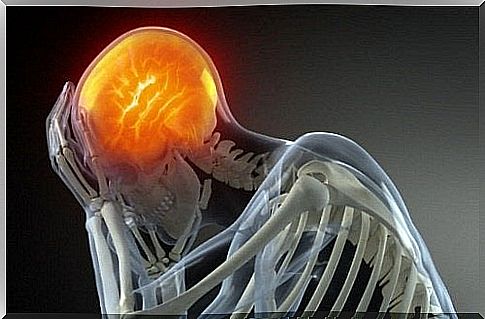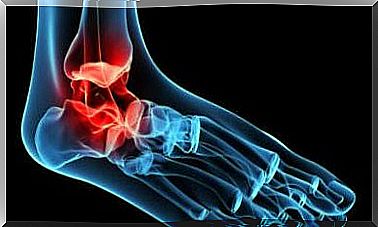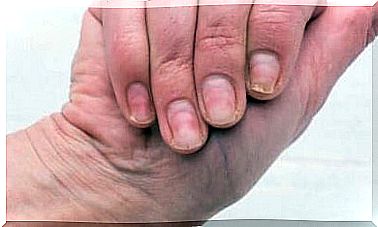When Should We Worry About Headaches?

Headaches are not an uncommon phenomenon in our lives. Everyone suffers from this annoying ailment, which usually goes away on its own without further complications. However, there are also people where taking a painkiller or resting well has little or no effect in reducing the pain.
For them, the pain is debilitating. We are indeed talking about migraines here, chronic headaches that seriously affect the quality of life of those who suffer from them.
So… when exactly should we worry about our headaches? Could a headache be a sign that something worse is going on? It’s definitely something to keep in mind.
Headaches: What Factors Determine Whether It’s Severe

Harvard University has conducted an interesting study on headaches. To reassure you right away, we can already say that the study showed that in almost 95% of the cases there are no signs of serious illness.
That said, it is only a small percentage where there is a debilitating problem. Diseases such as migraines, lupus, depression and arthritis are often related to headaches.
Of course nobody dies from it, but it seriously reduces the quality of life. That is why these diseases are often labeled as ‘socially invisible diseases’.
Yet it remains a complex and difficult problem. We need to be able to tell when a headache or a suspected migraine is no longer normal and try to tell us that there is more to it. There are three features we need to keep in mind.
1. When Should We Start Worrying About Headaches
Harvard University cited a number of characteristics in the aforementioned study that we should consider when assessing a person’s headache.
Keep in mind:
- Sudden changes in your headache. If you could always take the pain away by using a painkiller and this suddenly no longer works, it is best to consult a doctor.
- When we suddenly experience a very unusual and pain in the head, we should seek help (symptoms of a stroke).
- If the pain increases when we cough or move, this is also not normal.
- The pain should not interfere with our daily activities.
- There are individuals who display aggressive behavior or are more easily irritated by headaches. This is also not normal.
- Be careful if you get a headache combined with the flu and stiffness in the neck.
- If you experience vision and/or speech problems, feel faint, or have bloodshot eyes, go to the emergency room right away.
- Doctors also warn us that sudden onset of pain at night is not normal.
- If we experience waves of pain or if the pain persists, we should also go to the emergency room as soon as possible.
2. Headaches and Strokes

Of course, most of all we worry that the headache could indicate an impending stroke. Strokes occur in both young and less young people. So you better pay attention to the six warning signs below:
- Sudden loss of strength in one side of the body : an arm, leg or part of the face.
- As mentioned before, when we experience an unusually strong pain in the head, the worst pain we have ever had.
- Intense tingling in the face, arm or leg (in one side of the body).
- Loss of sight in one of the eyes.
- Difficulty speaking or expressing ourselves.
- A feeling like fear of heights, instability or loss of balance are common elements that occur just before a stroke.
The “Devil of the Headaches”

We know the impact of migraines and pressing headaches, but according to neurologists and patients who have suffered from them, cluster headaches are the most painful of all.
When the pain occurs, we think that something very bad is going on, but actually there is little or nothing to it. The pain is very intense and can keep us out of the fight for several hours, but, as we mentioned before, it’s usually not an indication of anything bad.
- Cluster headaches occur in 1% of the population, mainly in men.
- It is an intense and numbing pain that can last 15 to 90 minutes and occur at different times of the day.
- The problem is caused by minor problems in the hypothalamus and cardiac arrhythmias. Sometimes our lifestyle, stress, lack of sleep and pressure at work can all combine to cause this problem.
In summary, headaches are usually not an immediate indication that something is seriously wrong and are often related to fatigue, tension and changes in hormones.
However, if a headache interrupts your daily routine and is accompanied by other symptoms mentioned above, you should consult a doctor to establish a precise diagnosis. In any case , a headache is a symptom to watch out for.









